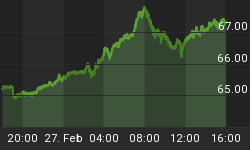"Never, ever take counterparty risk. It is the one risk you are almost never rewarded for taking." Joshua Brown summarizing a recent presentation by bond guru Jeffrey Gundlach. Sage but largely unheeded advice as the emerging winner of the "Unexpected Risk of 2011" competition is surely counter-party risk.
For the longest time, counter-party risk has not been something that the average investor gave much consideration. State backed financial insurance schemes and the ostensibly strong balance sheets of financial service providers combined to create an unwarranted sense of safety. Lets address these two supposed bulwarks in turn.
-
State backed financial insurance schemes are insufficient to protect depositors/beneficiaries from a systemic crisis, particularly a crisis of sovereign solvency. If state funded schemes could protect from a sovereign default we would have discovered something akin to perpetual motion in the form of the insolvent bailing out the insolvent.
-
It is increasingly apparent that many financial intermediaries only appear to be well capitalized because risks, where apparent, are thought to be hedged/offset via a range of derivative instruments - CDS, interest rate swaps - the list goes on. Via such hedge transactions, intermediaries argue that net exposure, rather than gross, is the key measure for investors to consider.
Though not entirely accurate, I would suggest that this reasoning is akin to building a larger and larger pile of gunpowder kegs while at the time stock-piling fire extinguishers so as to try to make the argument that while a large pile of gunpowder might be unsafe by itself, a large unsafe pile behaves like a small safe pile if you can put out the fire in time - maybe, maybe not.
If recent events have taught us anything it should be the obvious principle that hedging cannot eliminate risk, it can only re-allocate risk - an important distinction. Whether because this has been conveniently forgotten or perhaps willfully ignored, there has been a tendency for some entities to take concentrated gross positions in certain risks with the view that any unwanted/excess risk can be reduced at any time via hedges rather than an outright reduction in the underlying position itself. However, recent events prove that where there is a concentration of risk in critical counter-parties (e.g. AIG), in a world of high positive correlations across markets and asset classes, hedges can fail leaving catastrophic gross rather than net exposure behind.
When losses arise - e.g. Greek defaults - some participant(s) in the system must ultimately suffer those losses. In such a structure if a critical counter-party fails - and of course they do - the concentration of risk starts to increase unexpectedly and the magnitude of the true losses is revealed suddenly.
Financial entities continue to report on net rather than gross exposures for risk purposes. Investors need to be alive to the issue that the net position may not reflect the true risk if there is tendency to strong themes amongst both the entities' and their counter-parties' positions - e.g. we don't think Italy will default. Ask account holders of MF Global how they feel about unexpected counter-party failure and the efficacy of financial risk reporting.
Why are apparently solvent institutions suddenly subject to failure? The late economist, Murray Rothbard provides a simple and compelling answer with the concept of subsidized malinvestments accumulating in the system:
"The longer the boom of inflationary bank credit continues, the greater the scope of malinvestments in capital goods, and the greater the need for liquidation of these unsound investments. When the credit expansion stops, reverses, or even significantly slows down, the malinvestments are revealed. [Ludvig von] Mises demonstrated that the recession, far from being a strange, unexplainable aberration to be combated, is really a necessary process by which the market economy liquidates the unsound investments of the boom, and returns to the right consumption / investment proportions to satisfy consumers in the most efficient way. Thus, in contrast to the interventionists and statists who believe that the government must intervene to combat the recession process caused by the inner workings of free-market capitalism, Mises demonstrated precisely the opposite: that the government must keep its hands off the recession, so that the recession process can quickly eliminate the distortions imposed by the government-created inflationary boom."
So by preventing the timely and orderly liquidation of mal-investments, government intervention allows them to accumulate to catastrophic levels creating the raw material for a highly unstable and discontinuous financial system. In such an environment "sudden and unexpected losses" occur with alarming frequency.
It is because we believe that counter-party risk remains opaque and non-trivial that a key part of our investment approach is to find assets that capture our desired returns but as much as practical eliminate or reduce counter-party risk - e.g. farmland rather than wheat futures to capture agriculture returns.
Kind Regards















